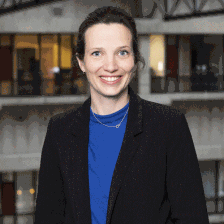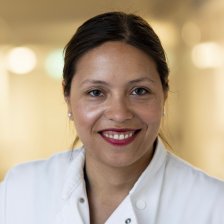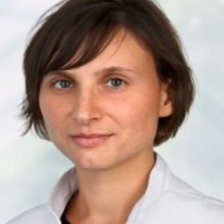Both diabetes and hypertension represent major threats to population health and health care in the Netherlands, with over 1 million people affected by diabetes alone. This prevalence is expected to increase by ~30 percent in the next 15 years. As obesity prevalence is expected to double in this period, type 2 diabetes mellitus, the metabolic syndrome (and their co-morbidities will profoundly affect our health and economy.
Both conditions share epidemiological features (like premature cardiovascular diseases of ageing), pathophysiological mechanisms (including systemic microvascular dysfunction) and clinically important cardiovascular complications.
- The pathogenesis of type 2 diabetes mellitus and diabetes-related complications and comorbidities
- Novel therapies for type 2 diabetes mellitus
- Cardiovascular disease driven by hypertension, obesity, type 2 diabetes and/or chronic kidney disease
- To unravel the pathogenesis of hypertension and its link to cardiovascular disease
- Novel hypertension therapies
- Links between metabolic, cardiovascular (including heart failure), and kidney disease through impaired microvascular function
Focus
- Biobank studies and computational modeling
- Detailed human metabolic and hemodynamic phenotyping at clinical trial units including assessment of insulin sensitivity, beta-cell function and tissue based data obtained from biopsies
- Clinical and experimental models (e.g. mice, co-cultures, subjects at risk) for microvascular dysfunction
- Fecal microbiota transplantation studies
- Studies investigating sodium and potassium homeostasis in people with chronic kidney disease
Unique research expertise
Aim
Our overall goal is to lead in translational population-based, clinical and basic research focusing on diabetes, hemodynamic and metabolic derangements that lead to cardiovascular and kidney complications.
Program Leaders
Young ACS
Program members
-
 Aart NederveenPI PROF.DR.IR.
Aart NederveenPI PROF.DR.IR. -
Abel ThijsPROF.DR.
-
Abraham Stijn Meijnikman
-
Albert WiegmanPI DR.
-
Albertus KooterDRS.
-
Aldo Grefhorst
-
 Alessandra TammaroPI PhD
Alessandra TammaroPI PhD -
Alinda SchimmelBEng BSc
-
Aline Fenneman
-
Amber KornMSC.
-
Angélique de ManPI DR.
-
Anne Myrthe van Vliet
-
 Annette MollPI PROF.DR.
Annette MollPI PROF.DR. -
Armand GirbesPI PROF.DR.
-
Azam NurmohamedDR.
-
Barbara HuttenPI DR.
-
 Barbara Verhaar
Barbara Verhaar -
 Benedikt PreckelPI Prof. MA MD PhD
Benedikt PreckelPI Prof. MA MD PhD -
Bert GroenProf. PhD
-
 Bram HulstMD
Bram HulstMD -
Bram Veldman
-
Brigitta van JaarsveldPI DR.
-
Britt WeverDRS.
-
Camiel de Roij van Zuijdewijndr.
-
 Carolien BulteDR.
Carolien BulteDR. -
 Caroline de VriesPI PROF.DR.
Caroline de VriesPI PROF.DR. -
Cengiz Callender
-
 Charles AgyemangPI Prof. PhD
Charles AgyemangPI Prof. PhD -
 Chun-Xia YiPI DR.
Chun-Xia YiPI DR. -
 Coert ZuurbierPI DR.IR.
Coert ZuurbierPI DR.IR. -
Dana YumaniDR.
-
 Daniël van RaaltePI PROF.
Daniël van RaaltePI PROF. -
Daniela Stols-GoncalvesDRS.
-
Daniko Sindhunata
-
 Denise VeeloPI PROF.
Denise VeeloPI PROF. -
Dick MarkhorstDR.
-
Dink LegemateProf. PhD
-
Eduard van der Vossen
-
Eefje Belt
-
 Elena RampanelliPI PhD
Elena RampanelliPI PhD -
 Eric Moll van CharantePI Prof. MD PhD
Eric Moll van CharantePI Prof. MD PhD -
Erik SernéPI DR.
-
 Etto EringaPI DR.
Etto EringaPI DR. -
 Eveline BruinstroopPI DRS.
Eveline BruinstroopPI DRS. -
 Fabrice MartensPI PROF.DR.
Fabrice MartensPI PROF.DR. -
 Femke RuttersPI DR. Associate professor, Principal Investigator and Principal Educator
Femke RuttersPI DR. Associate professor, Principal Investigator and Principal Educator -
Florine Westerbeke
-
 Fred VazPI PhD
Fred VazPI PhD -
Ganapathy van SamkarMD
-
 Gerben ter RietPI DR.
Gerben ter RietPI DR. -
 Han Jiao
Han Jiao -
Henning HermannsDR.
-
 Hilde HerremaPI PhD
Hilde HerremaPI PhD -
Ilaria Micallo
-
Ilias AttayeMD
-
 Ilona DekkersDR.
Ilona DekkersDR. -
 Ingeborg KlaassenPI PhD
Ingeborg KlaassenPI PhD -
Irene van ValkengoedPI PhD
-
Jacqueline Hoozemans
-
Jithsa Monte
-
Johanna Hakonen
-
Johannes LevelsPhD
-
 Joline BeulensPI PROF.DR.IR.
Joline BeulensPI PROF.DR.IR. -
Jonathan Overeem
-
Joost van den AardwegProf.
-
 Joris RoelofsPI PROF.DR.
Joris RoelofsPI PROF.DR. -
Juan Miguel Téllez Garcia
-
 Karien StronksPI PROF.DR.
Karien StronksPI PROF.DR. -
 Koen WortelboerMSc
Koen WortelboerMSc -
Lars SnelDRS.
-
 Liffert VogtPI PROF.DR.
Liffert VogtPI PROF.DR. -
 Lily JakuljPI DR.
Lily JakuljPI DR. -
Lonneke van VughtDR.
-
Lot Mosterd
-
Lotte de BoerDR.
-
Lucas Bresser
-
Maaike Winkelmeijer
-
Maarten SoetersPI MD PhD
-
Marc van HeerdeDR.
-
Marc VervloetPROF.DR.
-
 Marcus SchultzPI Professor PROF.DR.
Marcus SchultzPI Professor PROF.DR. -
Mariah Daal
-
 Marieke BlomPI PhD
Marieke BlomPI PhD -
Mariëlle Bruins
-
Mark DavidsPhD
-
Mark KramerPI PROF.DR.
-
Marlene van den BergBEng
-
Max NieuwdorpPI PROF.DR.
-
Michel van WeeghelMSc PhD
-
Michiel van Baar
-
Micky Karsten
-
Mijra Koning
-
 Milan RidderikhofDR.
Milan RidderikhofDR. -
 Mirjam LangeveldPI DR.
Mirjam LangeveldPI DR. -
Mirjam van WeissenbruchPROF.DR.
-
 Mirthe MuilwijkPhD.
Mirthe MuilwijkPhD. -
Miryam ObdeijnDR.
-
Moyan Liu
-
 Muriel GrootemanPI DR.
Muriel GrootemanPI DR. -
 Nam Bui
Nam Bui -
Noam ZelcerPI Prof. PhD
-
Noelle Bakker
-
 Nordin HanssenPI
Nordin HanssenPI -
 Omrum AydinMD DRS.
Omrum AydinMD DRS. -
 Onno HolleboomPI DR.
Onno HolleboomPI DR. -
Oren LapidDR.
-
 Paola Serrano Martinez
Paola Serrano Martinez -
Patrick de Jonge
-
Patrick ThoralDRS.
-
 Peter HarmsPhD
Peter HarmsPhD -
 Petra EldersPI PROF.DR.
Petra EldersPI PROF.DR. -
Pieter ter WeePI PROF.DR.
-
Pieter ZwanenburgBSc
-
 Prabath NanayakkaraPI PROF.DR.
Prabath NanayakkaraPI PROF.DR. -
Reinoldus GemkePI PROF.DR.
-
Richard IJzermanPI DRS.
-
 Riekelt HoutkooperPI Prof. PhD
Riekelt HoutkooperPI Prof. PhD -
 Rik Olde EngberinkPI PhD
Rik Olde EngberinkPI PhD -
Rob van HulstPROF.DR.
-
Roelof OttenhoffBEng
-
Rogier ImminkMD PhD
-
Rogier SchadeDR.
-
Roosje RoelantsMD
-
Rosa WoudaMSc
-
Rosalie ScholtesDRS.
-
S HavikMEng
-
Sabine van Oort
-
Sabrine Chaara
-
Samantha SchipperMSC.
-
Sandra StapelDR.
-
Sanedy Simon
-
 Sanne LithMSC.
Sanne LithMSC. -
Sean Platton
-
Sebastian HendrixMSc
-
Shaynah Wanga
-
Signe Nielsen
-
Stan Driessen
-
Stephan LoerPI PROF.DR.
-
Susanne PicardiMD PhD
-
Thei Steenvoorden
-
Torsten Scheithauer
-
Victor GerdesPI MD PhD
-
Vincent WekkerMD
-
Wafa Karar
-
Wolfgang SchlackProf. MD PhD
-
 Yvo SmuldersPI PROF.DR.
Yvo SmuldersPI PROF.DR.

